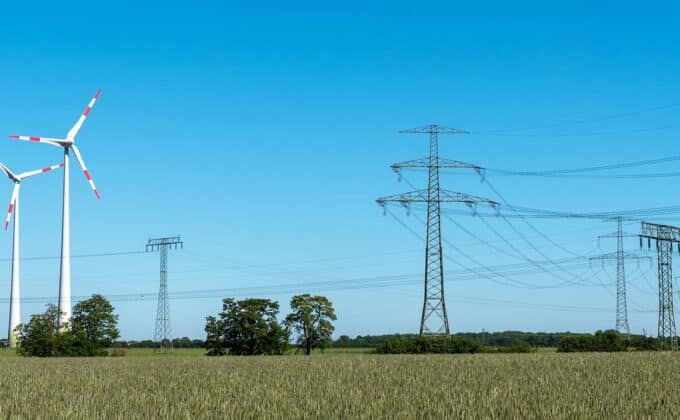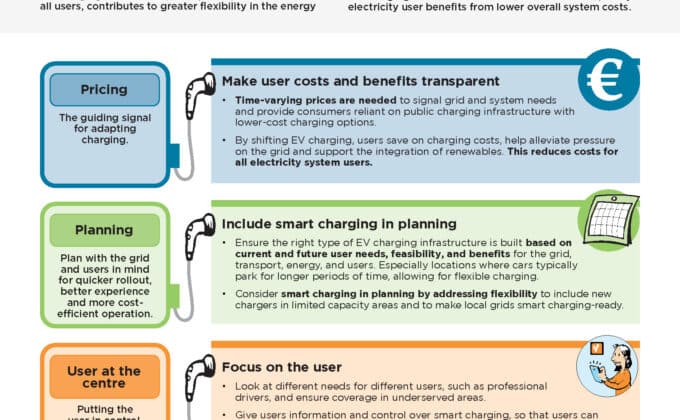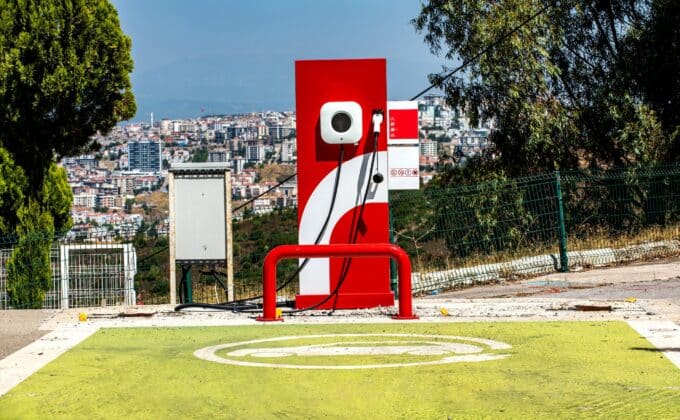Filter >>
Content Filter:
About this Report: Power grids have finite capacity. As renewables thrive and consumers electrify away from fossil gas, pressure on the grid is mounting. Lack of grid capacity is already a key barrier to deploying new renewables and connecting… View Summary +

With the European Alternative Fuels Infrastructure Regulation (AFIR) now in force, national, regional and local authorities need to get EV grid integration right from the outset. Smart charging can help integrate more renewables, use existing grid infrastructure more efficiently to… View Summary +

A fast-growing market for electric vehicles and the nation’s commitment to achieving a net-zero emission economy by 2053 will require Türkiye to prepare its power grids for the EV transition. Authors from SHURA Energy Transition Center partnered with RAP and… View Summary +

The EU Green Deal includes, among its climate neutrality initiatives, promises to put “people first,” be “just and inclusive” and to “[leave] no one behind”. The package of legislation – the Fit for 55 package – introduced to deliver on… View Summary +



热泵是实现可再生能源高效利用的技术路径,是热电转换的最佳途径,是全球公认的节能减碳技术措施。中国清洁取暖国家战略的实施,推动了热泵供暖的广泛应用。作为全国“煤改电”先进示范区域,北京制定了多项清洁取暖政策,以全社会减碳量为目标,综合考虑能源结构和价格系统,对比多种技术间的减碳效益和经济成本,鼓励可持续长期减碳的高效热泵技术发展,禁止、限制新增及改建热源中高碳排放的燃煤、燃气供热占比,为北方地区城市供热发展提供了积极参考。 北京市的发展经验可为京津冀地区转向以高效热泵为供暖主体提供样板。本文着重回顾了北京出台的用于支持热泵供暖的相关政策和技术路径,并提炼出几点可供其他地区参考的建议: 加强推广新能源取暖,将“电代煤”、“电代气”列为工作重点,明确高效热泵技术的“替代”效果。 提供热泵应用财政支持,激励企业和居民选择热泵进行供暖改造,并逐渐减少对化石能源供暖的资金支持。 与城市规划目标一致,结合国家和城市的“双碳”目标制定规划。对未来可能削减的工业和火电热电联产的余热,要充分考虑项目存续周期,论证余热利用的经济性后再投入建设,避免推高社会层面上实现“双碳”目标的经济成本和社会成本。 制定清晰可行的指标,设定有科学依据、数值明确、逐步增量的新能源供热采用目标。 促进热泵设备质量提升,引导用户选择能效比高并且性能稳定的供热设备,并定期更新产品质量要求。 本文精简版首刊于《中国电力报》,2024年6月24日… View Summary +

随着电力体制改革的深入和电力市场化的推进,中长期市场和现货市场发展迅速。长期以来,电力中长期合同被视作保供稳价的“压舱石”,随着改革的不断深入,中长期市场中存在的两个关键问题逐渐暴露出来,即不合理的上网电价机制以及对电力调度产生的深层次影响,进而延缓了新能源入市进程。针对这些问题,我们对现状进行了梳理并总结了一些国际经验,对完善燃煤发电上网电价和通过中长期市场支持系统灵活性等方面提出了五点思路。… View Summary +

